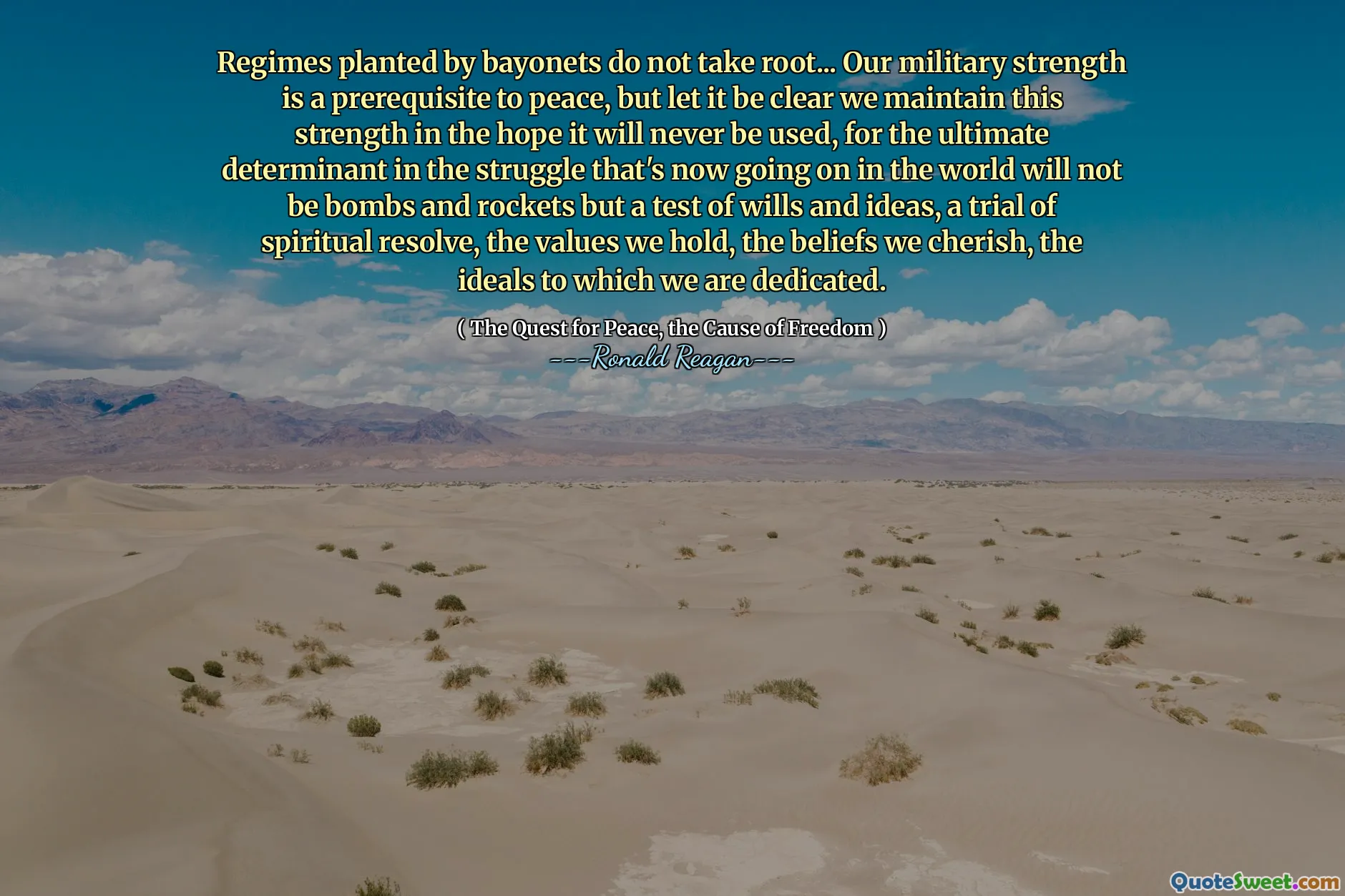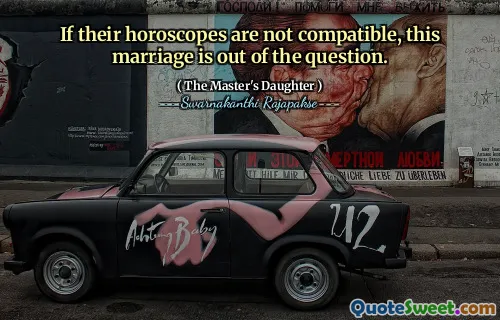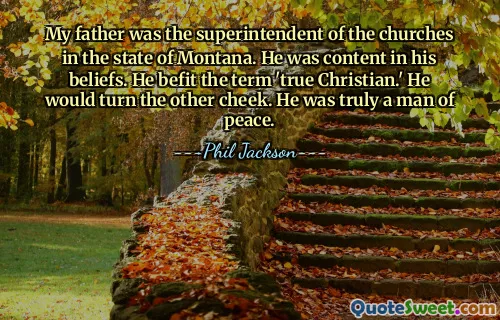
Regimes planted by bayonets do not take root... Our military strength is a prerequisite to peace, but let it be clear we maintain this strength in the hope it will never be used, for the ultimate determinant in the struggle that's now going on in the world will not be bombs and rockets but a test of wills and ideas, a trial of spiritual resolve, the values we hold, the beliefs we cherish, the ideals to which we are dedicated.
This quote eloquently encapsulates the complex relationship between military power and peace, emphasizing that true security extends beyond mere armament. The speaker underscores a fundamental truth: historically, regimes enforced through coercion and violence—symbolized here by bayonets—rarely establish stable and enduring foundations. Such imposition often breeds resistance and instability instead of genuine allegiance or harmony.
The acknowledgment that military strength is a prerequisite to peace is a pragmatic stance; a formidable defense acts as a deterrent against aggression. However, what makes this statement profoundly compelling is the assertion that this strength is maintained with the hope it will never be required to be used. This underscores a philosophy of peace through strength, rooted in the understanding that the presence of power is a safeguard rather than an aggressive posture.
Most striking is the emphasis on the moral and ideological battleground. In the contemporary world, conflicts aren't solely resolved by overwhelming firepower—they are ultimately decided through the conviction of ideas, beliefs, and values. The mention of a "test of wills and ideas" highlights the spiritual and ideological dimension of conflict, suggesting that perseverance in these intangible realms is the ultimate determinant of peace or war.
This perspective encourages nations to uphold their moral principles and core values, viewing military might as a means of protecting these ideals rather than an end in itself. It advocates for a balanced approach: being strong enough to deter conflict while simultaneously fostering a culture rooted in shared ideals and spiritual resolve. Such an approach champions a world where peace is sustained not just through fear, but through mutual understanding, conviction, and respect for universal values.
Overall, the quote serves as a reminder that true stability arises from the strength of our convictions, and that lasting peace depends on our willingness to defend our fundamental beliefs as fiercely as we bolster our defenses.





